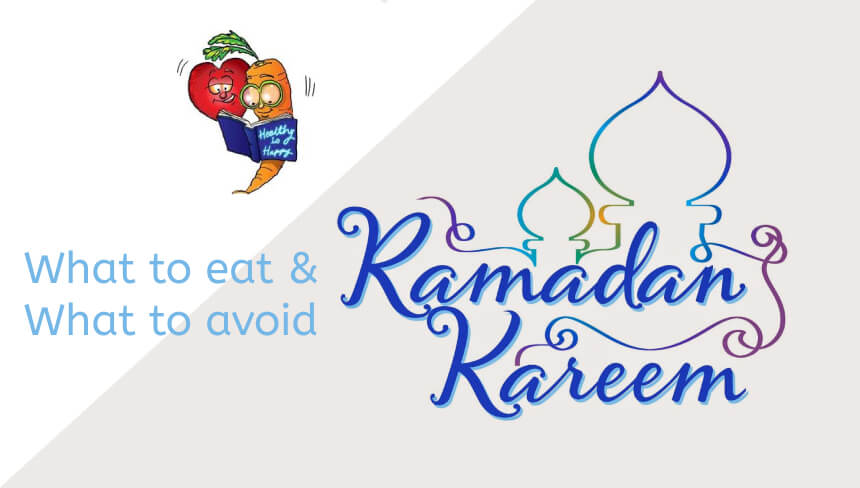
Ramadan is one of the most important months of the year for Muslims. This month holds enormous blessings and rewards for those who fast during this month and refrain from all bad habits whatsoever it is.
Ramadan is the month of the Quran as Quran was revealed in this beautiful month. ALLAH SWT mentions the importance of this prosperous month in the holy Quran several times.
ALLAH SWT says:
“The month of Ramadan is that in which was revealed the Quran; a guidance for mankind, and clear proofs of the guidance, and the criterion (of right and wrong). And whosoever of you is present, let him fast the month, and whosoever of you is sick or on a journey, several other days. ALLAH SWT desires for you ease; He desires not hardship for you; and that you should complete the period, and that you should magnify ALLAH SWT for having guided you, and that perhaps you may be thankful”.(Quran 2:185)
Ramadan is the best time to get connected with ALLAH SWT and ask forgiveness for all your sins and enhance yourself both spiritually as well as physically.
According to science and nutritionists, Ramadan fasting helps improve one’s health drastically and can cure various diseases.
It has been discovered that Fasting can help regulate blood sugar levels, boost metabolism, improve cardiovascular functions, and increase immunity. Ramadan fasting if done correctly can also aid in weight loss, and various studies have shown that fasting in the month of Ramadan also causes positive metabolic changes that may be associated with increased lifespan.
ALLAH SWT states in the Holy Quran that: To fast is best for you if you only knew.” (Quran 2:184)
Unfortunately, people nowadays focus more on indulging in big feasts that consist of all types of unhealthy food options. However, if we become thoughtful of our eating habits and inner health during this month, it can help us to acquire a healthy body and maintain energy levels thorough out the fasting hours as many more health benefits.
During the holy month of Ramadan, we need to be energetic and active throughout the day to do supplications and daily chores without feeling dizzy. And to acquire that amount of energy levels, we must include foods rich in vitamins, minerals, and proteins including carbohydrates and other micronutrients as well.
It’s a very common mistake in most people to skip the suhoor and eat heavy meals in iftar.
Here is the list of food items that we should eat and avoid during the month of Ramadan.
Foods To Eat During The Month Of Ramadan
- Protein-rich foods like eggs, chicken, fish, lentils, beans, and different nuts are required to repair the body tissues and also maintain the muscle mass of the body reducing unwanted fats.
- Fibrous food like fresh f fruits, veggies, and seeds provides a good amount of vitamins and minerals to the body.
- Oatmeal and daliya (wheat porridge) are some of the best options for suhoor.
- Home-made yogurt/curd.
- Milk
- Dates as it is a sunnah to break the fast with dates. Dates are the best source of minerals, natural sugar, and fiber. Dates provide instant energy.
- Must include foods that are hydrating and drink plenty of water.
- whole wheat bread, quinoa, and brown rice are some of the good sources of complex carbohydrates that help you keep full throughout the day and provide sustained energy as well.
Make sure to have a balanced diet and include these food groups in your diet to have a healthy and active Ramadan. Eating healthy will help you to focus more on Ibadah and with full of energy and ruju InshaALLAH.
Foods To Avoid During The Month Of Ramadan
- Never break your fast with spicy and fried food items as they will be too heavy on empty stomach and would cause severe digestive issues and bad health.
- Avoid cold drinks and sugary drinks- they cause a spike in blood sugar levels and make you feel lazy and lethargic later.
- Always avoid processed and market-bought packaged food- these food items contains a high amount of sodium and harmful preservatives which have bad effects on our body.
- Stay away from caffeinated drinks as they will dehydrate your body.
- Avoid fatty, greasy, and spicy foods as they cause dehydration making you feel thirsty during fasting hours and creating digestive issues as well.
- Food items mentioned above need to be avoided completely especially during the month of Ramadan because these foods make you feel dizzy, lazy, and low on energy and hence you won’t be able to focus on the prayers and ibadah.
Always choose healthier options for iftar and suhoor and never skip suhoor as it’s a sunnah of the beloved Prophet Muhammad SAW and suhoor holds blessings. Also, suhoor keeps prepares you for the fasting day. Remember to keep your iftars light.
May ALLAH SWT help us to make the most of this blessed month and accept our fasts and duas.
Read more:
7 Tips for Healthy Ramadan Fasting
Zakat Calculator

